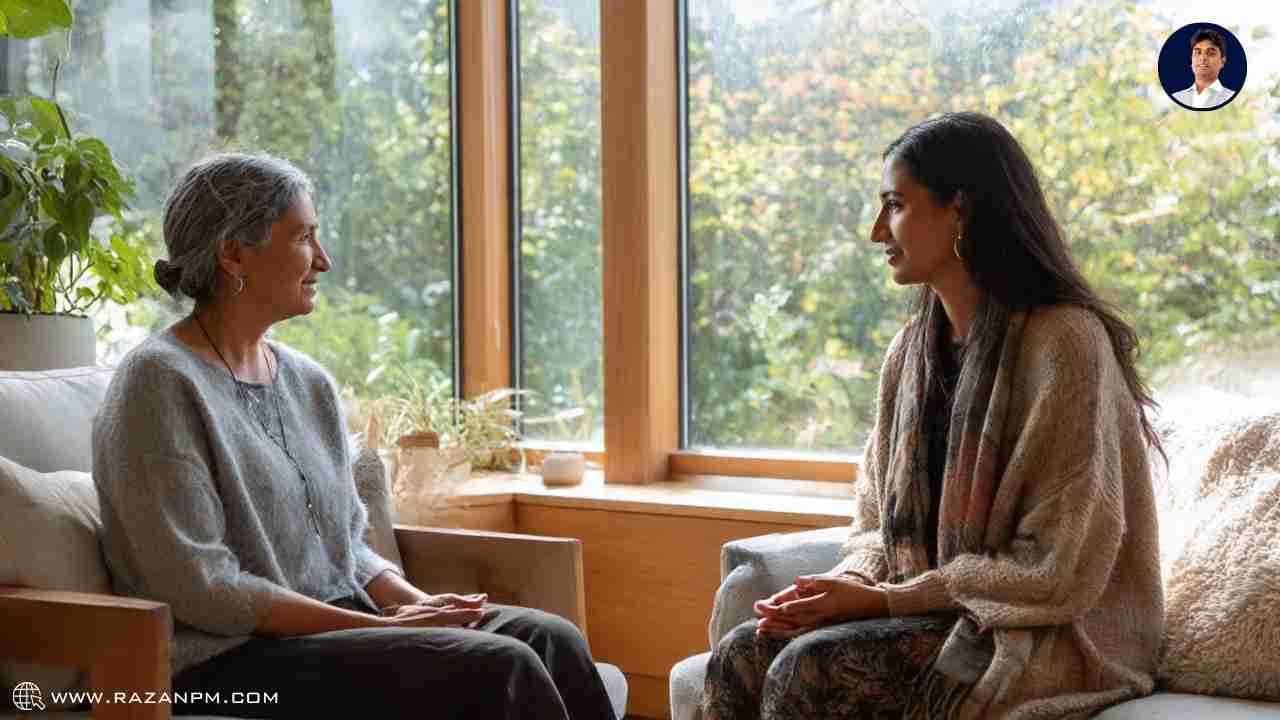Funny thing — we start overthinking even a small delay in reply. Our brain creates a Netflix drama out of two blue ticks. One minute, we’re smiling; the next, we’re spiraling — “Did I say something wrong? Are they losing interest? Was it even real?”
That small uncertainty, my friend, is how affection turns into anxiety.
also read: 6 warning signs of depression thatincreases heart risk
One day, they’re warm, expressive, and loving — “I miss you,” “You mean the world to me.”
Next day, they go distant, cold, or emotionally unavailable.
You’re left wondering:
“How can someone go from deeply affectionate to completely withdrawn… overnight?”
This emotional push and pull — called the hot and cold behavior in love — confuses your heart and drains your mind. It’s not just about love; it’s about mental peace.
also read: why small fights turn into bigarguments?

In simple terms — your nervous system doesn’t know if it should relax or prepare for rejection.
And so, you start overthinking every small thing… until you forget how to feel safe in love.
also read: overthinking messages is killingyour peace

If these feel familiar, you’re not overreacting — your emotional system is reacting to inconsistency.
also read: overthinking messages is killingyour peace
In clinical terms, this push-pull pattern often connects to attachment styles and emotional regulation issues.
According to the DSM-5 (Diagnostic and Statistical Manual of Mental Disorders) and ICD-11 (International Classification of Diseases), such patterns can be influenced by:
In simple words:
“The mind repeats what it didn’t heal.”
If love once felt unsafe, unpredictable, or conditional — your brain might expect that pattern even in healthy love.
also read: blood sugar battles affect mentalhealth

Studies from the Journal of Personality and Social Psychology reveal that intermittent reinforcement — when affection is given unpredictably — creates stronger emotional dependency.
It’s the same mechanism seen in addictive behavior: the unpredictability keeps you hooked, always waiting for the next “reward” of affection.
A 2020 study by Dr. Amir Levine (author of Attached) shows how anxious and avoidant partners often get drawn to each other — creating that hot-cold dance that feels passionate but emotionally unstable.
Another research by Dr. Sue Johnson, founder of Emotionally Focused Therapy (EFT), explains that love becomes confusing when emotional needs aren’t met consistently — causing one partner to protest (cling) and the other to protect (withdraw).
also read: how to escape the trap of constantdigital talk?
I’ll never forget one of my clients, let’s call her Aisha.
She said, “Sir, I feel like I’m chasing a ghost — sometimes he loves me, sometimes he disappears.”
Aisha was successful, confident, but emotionally drained.
Every time her partner pulled away, she blamed herself. Her self-worth became dependent on how warm or cold he behaved.
Through therapy, we discovered her childhood pattern — her father was affectionate but emotionally absent at times. The same pattern was repeating now, unconsciously.
When she realized, with tears in her eyes, “I’m not broken — I was just trained to earn love,” — that’s when healing began.
That story stays with me… because so many of us are living it silently.
also read: why digital conversations arekilling real connection?

Let’s do a small but powerful practice I use in sessions — the “Safety Reframe Technique.”
When your mind starts spiraling —
“They didn’t text back… maybe they don’t care anymore.”
Pause. Take a deep breath.
Now say aloud:
“My worth is not measured by their mood.”
“I am safe even when things feel uncertain.”
Then, gently place your hand on your heart — this sends a neurological cue to your brain that you’re safe in the moment.
Repeat this whenever anxiety strikes.
Over time, your brain starts forming new associations — love no longer feels like a threat.
(Trust me, I’ve seen this tiny exercise create massive shifts over weeks.)
also read: how to read body language signs indaily life?
What we did here is just one layer.
Healing hot-cold love dynamics takes deeper work — understanding your attachment style, rewriting core beliefs, and learning emotional regulation tools.
It’s not about changing your partner first; it’s about reprogramming how your mind experiences love.
Because when you start feeling emotionally safe, love naturally becomes consistent.
also read: 8 signs of hidden depression incancer survivors
If you’ve been in that loop of affection and withdrawal, I want you to know — you’re not alone, and you’re not “too sensitive.”
Your emotions are simply asking to be understood, not suppressed.
If this feels familiar, you don’t have to figure it out alone.
🌷 Let’s talk. Book your private consultation here – Book Your Session.
Together, we’ll uncover your emotional patterns and help you experience love that feels safe, secure, and soulful.
Because true love shouldn’t feel like guessing… it should feel like coming home. ❤️
👉 Begin Your Journey with a 1 on 1 Consultation
👉 Begin Your Journey with a 1 on 1 Consultation

QLove often feels hot then cold when one or both partners struggle with attachment insecurity. Emotional closeness may feel safe sometimes, but overwhelming at other times — leading to withdrawal.
This behavior usually comes from avoidant attachment or fear of vulnerability. When emotional intimacy increases, the mind unconsciously protects itself by creating distance.
also read: 12 behaviors that reveal a man issexually frustrate
It can be both. Some people consciously play mind games, but in most cases, it’s an unhealed trauma response — where affection feels both comforting and unsafe due to past emotional wounds.
Start by practicing self-regulation techniques like deep breathing, journaling, or the Safety Reframe Technique. Remind yourself, “Their silence doesn’t define my worth.” It helps your brain feel safe again.
also read: 9 hidden signs she misses physicalaffection
Yes . Attachment-focused therapy helps identify emotional triggers, rebuild safety, and create consistent connection patterns. Working with a Clinical Psychologist and Mind Healer can transform the way you experience love.
Because your subconscious mind repeats familiar emotional patterns. Once you heal your core belief about love and safety, you naturally attract emotionally available partners.
also read: why gen z cant sleep anymore and theoverthinking trap?
Healing begins with awareness, not blame. Recognize your triggers, communicate openly, and seek guided emotional healing to rewire the fear of closeness into trust.
also read: 12 things women do when theyre touchdeprived
